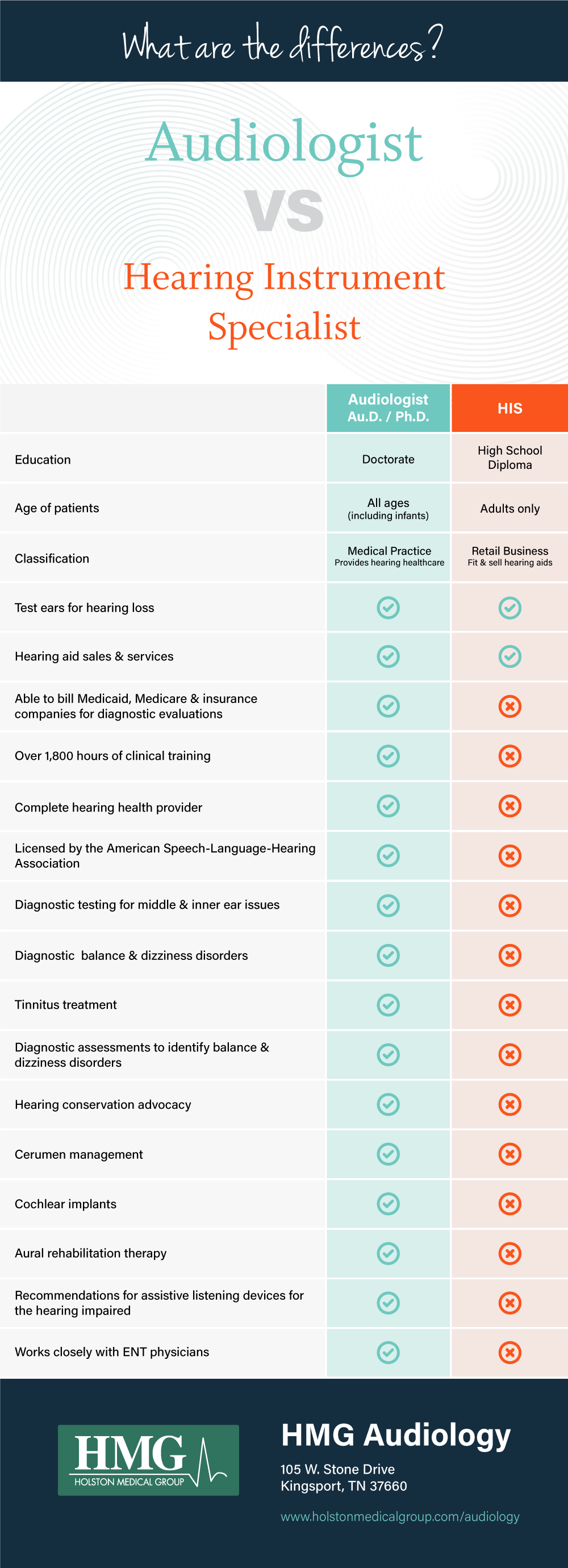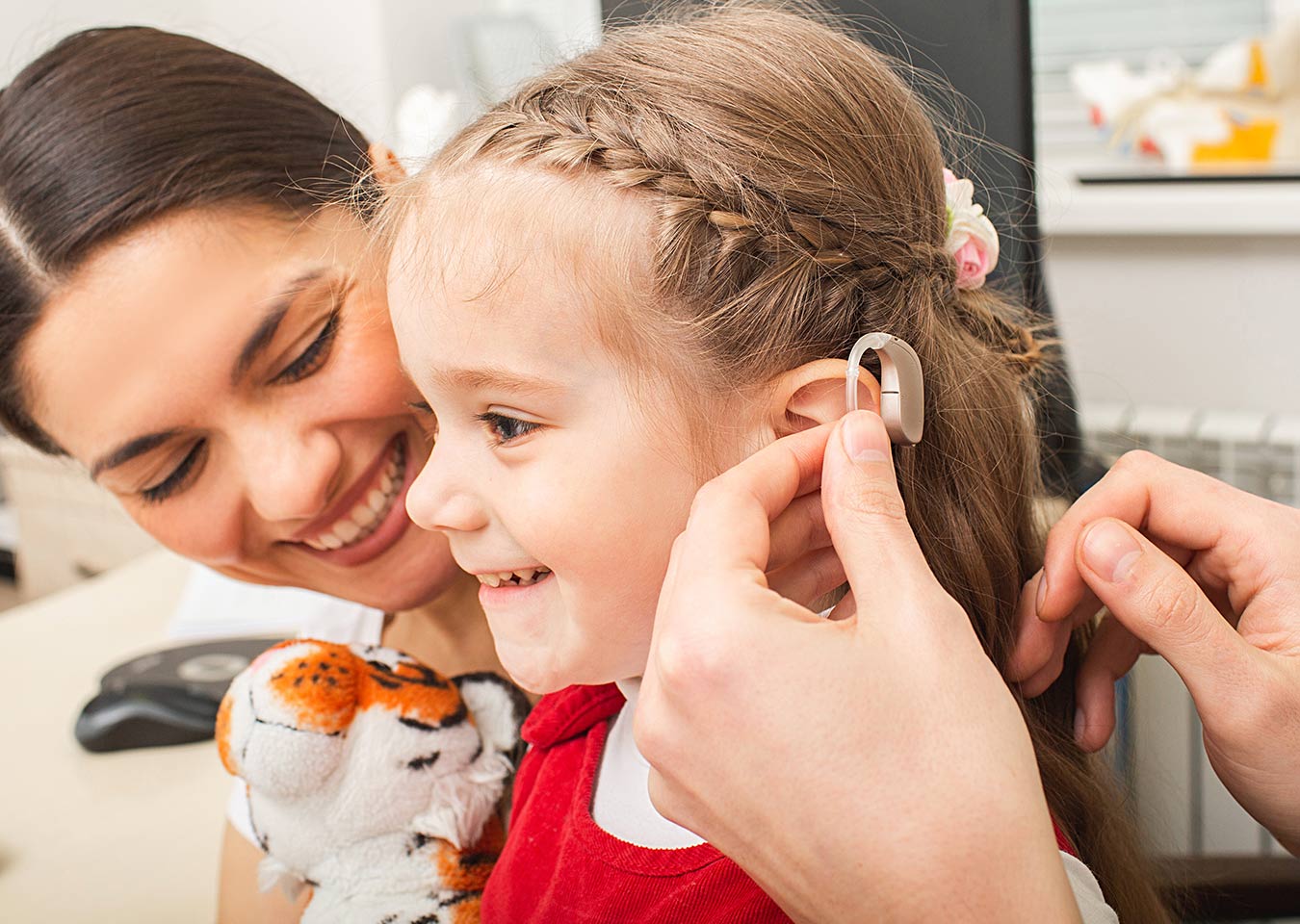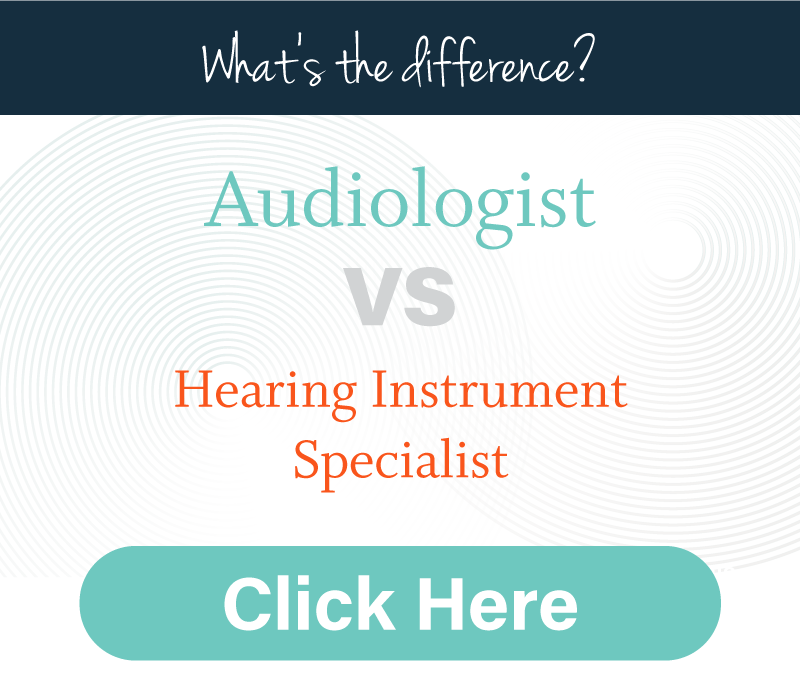What’s the Difference Between an Audiologist and a Hearing Instrument Specialist (HIS)?
We often get this question from our patients, so you’re not alone. Many don’t know that when it comes to hearing health, there’s more to it than just hearing aids.
An audiologist is a specialist of hearing health, which has a completely different purpose than many big-box retail stores that focus on hearing aid sales. Though the word “specialist” is in their name, hearing instrument specialists are not qualified to diagnose any health-related issues to your hearing, such as tinnitus, dizziness, balance and more.
Because audiologists specialize in hearing health, their education requirements and level of services offered surpass those of a Hearing Instrument Specialist (HIS).
Hearing aid health
An audiologist is a certified and licensed professional who has earned a Master’s Degree (MS) or Doctoral Degree (Au.D./Ph.D.) in the field of audiology. This level of advanced education usually requires 6-8 years of study to complete. Audiologists must also complete many hours of supervised training, during and after their graduate studies. They are trained to diagnose and treat all types of hearing loss, and to determine when a patient needs a medical referral to an ENT physician.
Audiologists are also licensed by the American Speech-Language-Hearing Board. They are trained to counsel patients regarding the level and type of hearing loss, of how hearing loss impacts daily communication, and on a variety of communication strategies. Audiologists are also trained to advise patients on the use of assistive listening devices for the hearing impaired (ALDs), when hearing aids are not enough.
A hearing instrument specialist (HIS) is not required to have the same advanced level of education. The amount of education required depends on the state they are practicing – some states require a high school diploma, while others require an associate degree. Hearing instrument specialists must also pass a written and practical exam to become licensed by the state in which they practice. Their training is limited to testing hearing for the purposes of selling hearing aids.
Hearing Aid Health
Unlike hearing instrument specialists, audiologists are experts in all aspects of hearing care, trained to identify a wide variety of underlying medical conditions that can affect the hearing and balance system. Audiologists also work closely with ENT physicians, when there’s a need to diagnose and treat complex hearing problems that are beyond the scope of just needing a hearing aid.
Due to these differences, audiologists are authorized to work with all patients: infants, children, adults, the elderly and patients with special needs. Unlike audiologists, HIS can only work with adults. HIS are not allowed to diagnose hearing loss or other medical issues and can only perform testing for the purpose of programming a hearing aid. Because of these limitations, people that are seeking help for the first time should see an audiologist to rule out any underlying medical issues that could be the cause of their hearing loss.
Holston Medical Group’s Audiologists provide proper diagnosis and treatment under the supervision and guidance of a Board Certified Otolaryngologist which is necessary before spending the first dollar on a hearing device. Because that’s what it means to be your health partner for life.




